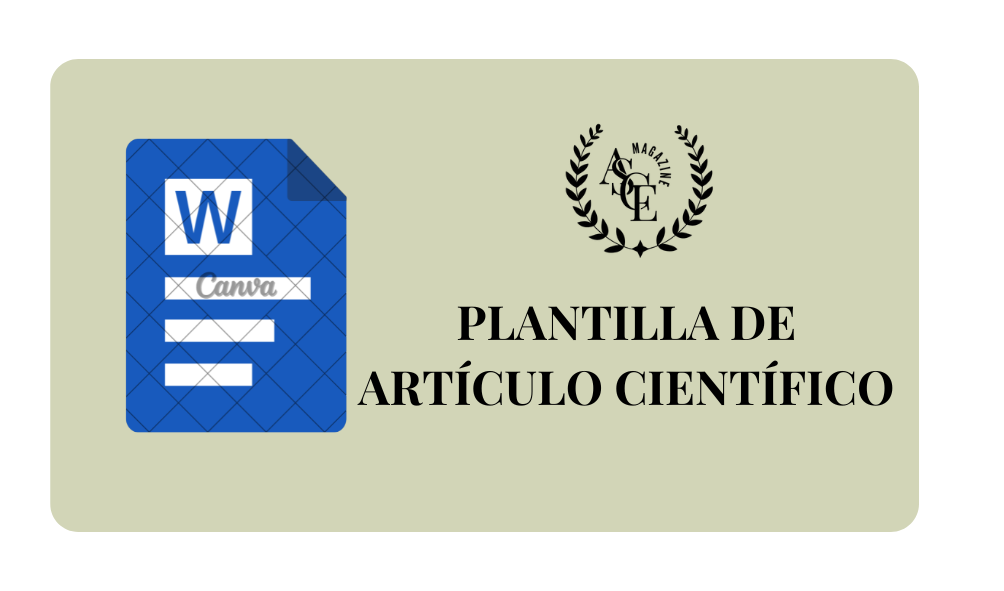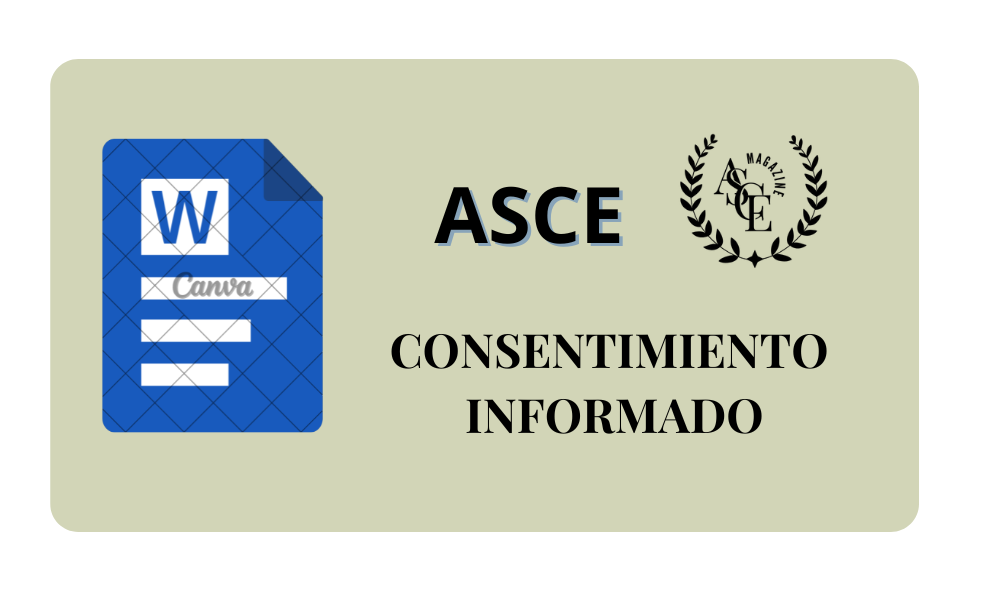Micro-enterprise: growth and productive development based on a Competence Model.
DOI:
https://doi.org/10.70577/ASCE/120.137/2025Keywords:
Micro Entrepreneur; Productive Development; Competencies; Microenterprise;SkillsAbstract
Competencies are essential for the performance of micro-entrepreneurs, who represent a significant part of the productive sector. However, a lack of knowledge and application of these competencies hinders their growth and sustainability. This study analyzes the relationship between competencies and productive development in Ecuadorian micro-enterprises.The objective of the study is to determine the impact of competencies on the productivity of micro-entrepreneurs and how their strengthening contributes to the sustainable growth of the sector. To achieve this, a mixed-method study was conducted, applying a bivariate analysis to a sample of 687 micro-entrepreneurs from Ecuador’s Zone 5 (provinces of Guayas, Los Ríos, Bolívar, and Santa Elena). A quantitative methodology was used with Likert scale surveys, and data were processed using SPSS software, obtaining a Cronbach’s Alpha coefficient of 0.876, indicating high reliability.The main results showed a positive correlation between competencies and productivity, with a Pearson coefficient of 0.501. The most valued competencies among micro-entrepreneurs were initiative (90%) and negotiation (74%), while cognitive ability (12%) was the least prioritized. This suggests that micro-entrepreneurs focus more on business operations rather than academic training.In conclusion, the productive development of micro-entrepreneurs directly depends on the application of key competencies. It is recommended to strengthen their training in business skills to improve their performance and long-term sustainability.
Downloads
References
Al Mamun, A., Fazal, S.A. & Muniady, R. (2019). Entrepreneurial knowledge, skills, competencies and performance: A study of micro-enterprises in Kelantan, Malaysia. Asia Pacific Journal of Innovation and Entrepreneurship, 13(1), 29-48. https://doi.org/10.1108/APJIE-11-2018-0067 DOI: https://doi.org/10.1108/APJIE-11-2018-0067
Alarcón Costta, C.A. (2003). Al Futuro con la microempresa. De país de desempleados a Patria de emprendedores. Escuela Superior Politécnica del Chimborazo. https://dokumen.tips/documents/jurado-noboa-alarcon-costta-al-futuro-con-la-microempresa.html?
Campion, M. A., Fink, A. A., Ruggeberg, B. J., Carr, L., Phillips, G. M., & Odman, R. B. (2011). Doing competencies well: Best practices in competency modeling. Personnel Psychology, 64(1), 225-262. https://doi.org/10.1111/j.1744-6570.2010.01207.x DOI: https://doi.org/10.1111/j.1744-6570.2010.01207.x
Campion, M. C., Schepker, D. J., Campion, M. A., & Sanchez, J. I. (2020). Competency modeling: A theoretical and empirical examination of the strategy dissemination process. Human Resource Management, 59(3), 291-306. https://doi.org/10.1002/hrm.21994 DOI: https://doi.org/10.1002/hrm.21994
Chigudu, T. (2021). Developing a Competency Model for Middle Class Managers at Weaverly Clothing Company in Zimbabwe. Journal of Human Resource and Sustainability Studies, 9, 276-290. https://doi.org/10.4236/jhrss.2021.92017 DOI: https://doi.org/10.4236/jhrss.2021.92017
Fernandes, R. B.; Bitencourt, C.C. & Comini, G. (2021). Modelos de gestão por competências em organizações líderes no Brasil. Revista de Administração da UFSM, 14(3), 458-477. https://doi.org/10.5902/1983465935598 DOI: https://doi.org/10.5902/1983465935598
Fernández, C. G. G., y Guadaño, J. F. (2005). El empresario individual: situación actual y propuestas de actuación futuras. CIRIEC-España, revista de economía pública, social y cooperativa, (52), 201-217. https://ciriec-revistaeconomia.es/es/revista/?num=2621
Fernandez-Ronquillo, M., Llinas-Audet, X., & Sabate, F. (2018). Competency model for microentrepreneurs in depressed environments. International Journal of Management and Enterprise Development, 17(4), 363-387. https://doi.org/10.1504/IJMED.2018.096255 DOI: https://doi.org/10.1504/IJMED.2018.096255
Fitzpatrick, R. (2000). Building robust competencies: Linking human resource systems to organizational strategies. Personnel Psychology, 53(1), 248.
Hayton, J. C., & Kelley, D. J. (2006). A competency‐based framework for promoting corporate entrepreneurship. Human Resource Management, 45(3), 407-427. https://doi.org/10.1002/hrm.20118 DOI: https://doi.org/10.1002/hrm.20118
Hernández, L., Portillo, R., Crissien, T., Alvear, L., y Velandia, G. (2016). La microempresa en Barranquilla: Una aproximación a su comportamiento. Educosta. https://repositorio.cuc.edu.co/handle/11323/1126
Hernández, S. B. (2009). El papel de las microempresas en el desarrollo económico regional: las redes de cooperación empresarial en España. REVESCO: Revista de estudios cooperativos, (99), 31-59. https://revistas.ucm.es/index.php/REVE/article/view/REVE0909330031A/18689
Instituto Nacional de Estadísticas y Censos, INEC (2022). Directorio de Empresas y Establecimientos, http://www.ecuadorencifras.gob.ec//documentos/web-inec/Estadisticas_Economicas/DirectorioEmpresas/Empresas_2022/Principales_Resultados_DIEE_2022.pdf
Kashtanova, E.V., Lobacheva, A.S., Makushkin, S.A., Ridho, T.K. (2021). A Competency Model in the Field of Information Technology. In: Bogoviz, A.V., Suglobov, A.E., Maloletko, A.N., Kaurova, O.V., Lobova, S.V. (eds) Frontier Information Technology and Systems Research in Cooperative Economics. Studies in Systems, Decision and Control, 316. Springer, Cham. https://doi.org/10.1007/978-3-030-57831-2_58 DOI: https://doi.org/10.1007/978-3-030-57831-2_58
Lucia, A. D., & Lepsinger, R. (1999). The Art and Science of Competency Models: Pinpointing Critical Success Factors in Organizations. Jossey-Bass/Pfeiffer.
Manxhari, M.; Veliu, L. & Jashari, J. (2017). Developing models of managerial competencies of managers: a review. International Journal of Economics, Commerce and Management, 5(4), 186-200. https://ijecm.co.uk/wp-content/uploads/2017/04/5412.pdf
Mirabile R. J. (1997). Everything you wanted to know about competency modeling. Training and Development, 51(8), 73–77. Citado por…
Moradi, S., Kähkönen, K., Klakegg, O., & Aaltonen, K. (2021). A Competency Model for the Selection and Performance Improvement of Project Managers in Collaborative Construction Projects: Behavioral Studies in Norway and Finland. Buildings, 11(1), 4. http://dx.doi.org/10.3390/buildings11010004 DOI: https://doi.org/10.3390/buildings11010004
Mungaray, A. y Ramírez, M. (2007). Capital humano y productividad en microempresas. Investigación Económica, 66(260), 81-115. https://www.jstor.org/stable/42779183
Mustapha, W.N.W., Al Mamun, A., Mansori, S. & Balasubramaniam, S. (2020). Effect of entrepreneurial competencies on micro-enterprises income and assets in Malaysia. Asia Pacific Journal of Innovation and Entrepreneurship, 14(3), 249-261. https://doi.org/10.1108/APJIE-01-2020-0009 DOI: https://doi.org/10.1108/APJIE-01-2020-0009
Nayebpour, H. & Sehhat, S. (2023). Designing the competency model of human resource managers based on paradox theory (case study: information and communication technology industry). International Journal of Organizational Analysis, . https://doi.org/10.1108/IJOA-02-2023-3645 DOI: https://doi.org/10.1108/IJOA-02-2023-3645
Quintal, A.; Sansores, E. A. y Navarrete, J. E. (2010). El sistema nacional de garantías PYME y su contribución al crecimiento económico en México 2003-2008. Revista de Economía, 27(74): 67-87. https://doi.org/10.33937/reveco.2010.14 DOI: https://doi.org/10.33937/reveco.2010.14
Rivero, F., Ávila, M.T., y Quintana, L. (2016). La promoción integral de la microempresa; Guía de mercadeo para las organizaciones promotoras. Popular.
Rodriguez, D., Patel, R., Bright, A., Gregory, D., y Gowing, M. K. (2002). Developing competency models to promote integrated human resource practices. Human Resource Management, 41(3), 309-324. https://doi.org/10.1002/hrm.10043 DOI: https://doi.org/10.1002/hrm.10043
Romero, J., y Zabala, K. (2018). Planificación estratégica financiera en las cadenas de farmacias familiares del estado Zulia - Venezuela. Revista de Ciencias Sociales (Ve), XXIV (4), 9-25. https://doi.org/10.31876/rcs.v24i4.24906 DOI: https://doi.org/10.31876/rcs.v24i4.24906
Segura, J. (1993). Teoría de la economía industrial. Revista de Economía Aplicada, 1(1). 209-214. Salas, V. (1993) discusión de un libro. https://www.revecap.alde.es/revista/numeros/01/pdf/salas.pdf
Shippmann, J. S., Ash, R. A., Batjtsta, M., Carr, L., Eyde, L. D., Hesketh, B.... y Sanchez, J. I. (2000). The practice of competency modeling. Personnel psychology, 53(3), 703-740. https://doi.org/10.1111/j.1744-6570.2000.tb00220.x DOI: https://doi.org/10.1111/j.1744-6570.2000.tb00220.x
Singh, V. & Srivastava, S. (2014). Understanding Competencies and Competency Modeling ― A Literature Survey. Journal of Business and Management, 16(1), 14-22. https://doi.org/10.9790/487X-16111422 DOI: https://doi.org/10.9790/487X-16111422
Srilekh, S.& Kapoo, P. (2023). Impact of entrepreneurial competencies on micro and small enterprises performance in Faridabad: examining the moderating effect of information technology. European Chemical Bulletin, 12(5), 1357-1364. https://doi.org/10.48047/ecb/2023.12.si5.127
Vogel, D.; Sohn, A. & Gomes, K. (2021). Analysis of Competencies Models in Culinary Arts Higher Education. Journal of Culinary Science & Technology, 19(2), 171-186. https://doi.org/10.1080/15428052.2020.1738299 DOI: https://doi.org/10.1080/15428052.2020.1738299
Downloads
Published
How to Cite
Issue
Section
License
Copyright (c) 2025 Mario Alfredo Fernández Ronquillo , Gloria de Lourdes Solís Beltrán , Mario Alfredo Fernández Solís , Carla Lorena Fernández Solís

This work is licensed under a Creative Commons Attribution-NonCommercial-NoDerivatives 4.0 International License.






























